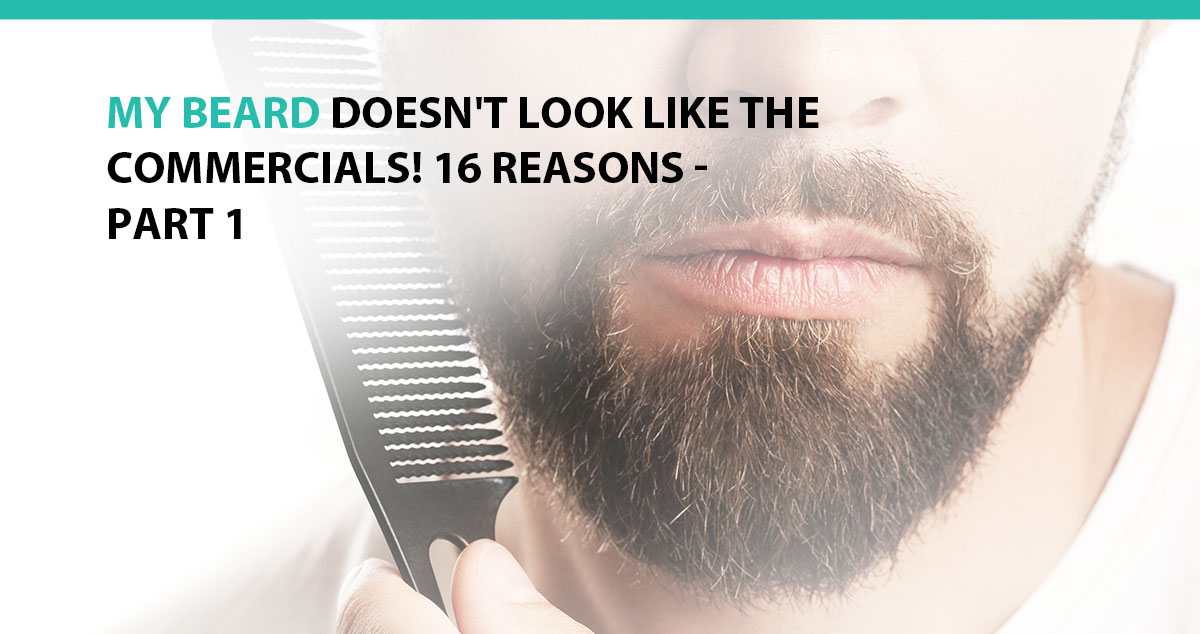
Achieving a robust and magnificent beard is a cherished desire for countless men. It not only enhances their appearance but also boosts self-assurance, serving as a symbol of masculinity and virility. Yet, for some, growing a beard can prove to be an arduous task, leaving them perplexed and searching for answers. While genetics often takes the blame, many other factors contribute to the challenge of beard growth. Let’s delve into 16 potential causes:
- Genetic Influence: Just like head hair, the growth of facial hair is predominantly dictated by our genetic makeup. Extensive research encompassing European, African, and Native American lineages has unraveled the impact of DNA on our hair’s various attributes. Specifically, a variant of the EDAR gene has been associated with sparser beard growth, as it also affects the straightness of head hair. Additionally, genes related to male sex hormones, such as the AR gene, play a pivotal role in beard development. While genetics wield considerable influence, it is crucial to acknowledge that other factors can contribute to inadequate beard growth.
- Hormonal Dynamics: The growth of a beard, akin to male pattern hair loss, is intricately tied to the production of dihydrotestosterone (DHT) derived from testosterone. DHT, known for its potency surpassing that of testosterone, actively promotes hair growth on the body, including the beard. However, testosterone itself exerts a lesser direct impact on facial hair development. It is essential to note that low testosterone levels alone are unlikely to be the sole culprit behind unsatisfactory beard growth. Hormonal imbalances encompassing elevated estrogen levels or deficiencies in other hormones can also influence beard development.
- Cultivating Patience: Growing a full and well-developed beard is a journey that requires time and patience. It can take several months for facial hair to grow evenly and reach its full potential. Some individuals may require even longer periods for their beards to fill out and achieve the desired appearance. Patience, adherence to a consistent grooming routine, and allowing ample time for growth are essential before drawing conclusions about the beard’s potential.
- Stress-induced Changes: Chronic stress unleashes a host of physical and emotional ramifications, including hair loss. Heightened stress levels can disrupt hormone production, including testosterone. Given the pivotal role of hormones in beard growth, fluctuations caused by stress can affect the hair on your chin. Mitigating stress levels through relaxation techniques, regular exercise, and seeking support can help restore normal hair regrowth. If prolonged stress and unusual hair loss persist, consulting a medical professional is advisable.
- Alopecia Barbae: Patchy beard growth might indicate the presence of alopecia barbae, a manifestation of alopecia areata. This autoimmune disorder instigates an erroneous immune response targeting the hair follicles, mistaking them for foreign entities. Effective treatments for alopecia barbae include corticosteroid injections, topical immunotherapy, and the use of growth medications like minoxidil.
- Medications and Underlying Medical Conditions: Some medications, such as specific antidepressants or chemotherapy drugs, can affect hair growth, including facial hair. Additionally, underlying medical conditions like autoimmune diseases or hormonal disorders can contribute to poor beard growth. Consulting with a healthcare provider to identify potential medication-related or medical condition-related issues is advisable.
- Hypothyroidism: Optimal thyroid function proves vital for the development and sustenance of healthy hair follicles, making hair loss a potential symptom of hypothyroidism. Weight gain, fatigue, depression, reduced libido, and memory issues are additional indications of an underactive thyroid. Undergoing a blood test to assess thyroid function offers the best means of determining whether you are affected.
- Hormonal Imbalances Beyond Testosterone: In addition to testosterone and DHT, imbalances in other hormones can also impact beard growth. Conditions such as polycystic ovary syndrome (PCOS) or Cushing’s syndrome, affecting hormone levels in both men and women, can lead to sparse or patchy beard growth. Seeking medical advice and undergoing hormone level testing can aid in identifying and addressing hormonal imbalances affecting beard growth.
Stay tuned for 8 more reasons a large portion of the population finds it difficult to grow any size beard, or at least a full one. If you’re concerned about your beard growth or have persistent difficulties with hair growth, contact us at Advanced Medical Hair Institute and we can provide personalized guidance and offer possible solutions.










